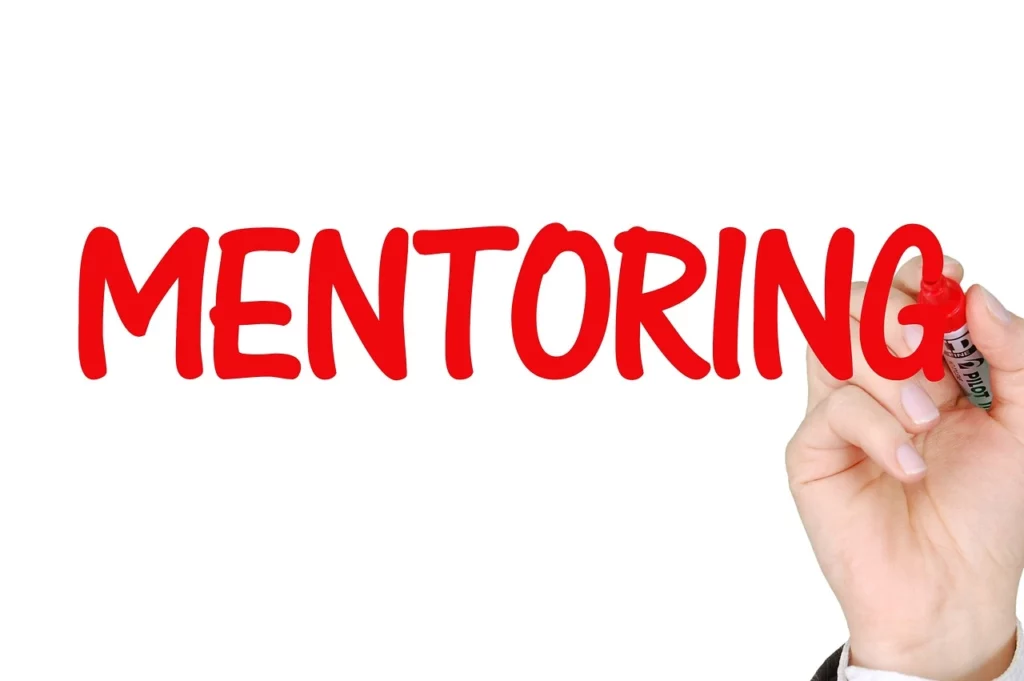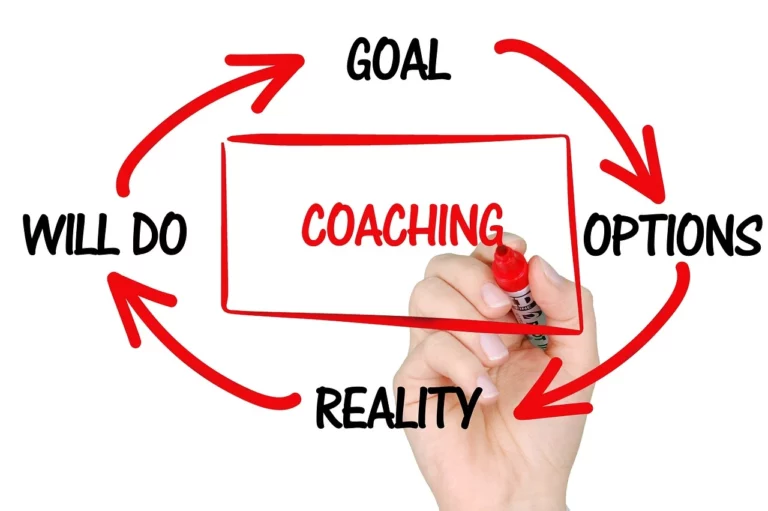“A mentor is someone who sees more talent and ability within you, than you see in yourself, and helps bring it out of you.”
Bob Proctor

Mentoring techniques is a strong tool that can help both the mentor and the person he or she is helping. It is a connection based on trust, guidance, and support, with the goal of helping the person grow personally and professionally. Mentoring methods works best when both people involved have a wide range of skills and techniques to use. This blog will look at some of the most important mentoring techniques that both mentors and mentees can use to get the most out of their relationship.
Most Important Mentoring Techniques
- Making goals and expectations clear
Setting clear goals for the mentoring techniques is the first step to making it work. Mentors
and mentees should work together to figure out what goals they want to reach during the
coaching process. Setting clear goals and standards helps give focus and direction and makes
sure that everyone is on the same page.
- Actively listening and talking openly
Effective mentors pay attention to what their mentees say and create a safe place where they
can talk freely. To help mentees talk openly about their thoughts and feelings, they must
show empathy, understanding, and patience. A healthy and effective mentoring relationship
is built on regular check-ins and open feedback sessions.
- Having reasonable goals
Mentors should help their mentees set goals that are reasonable and doable. Expectations that
aren’t fair can lead to disappointment and anger. Mentors help their mentees deal with
problems and celebrate their achievements by giving them advice and support.
- How to Give Helpful Feedback
Mentors are very important because they help mentees improve by giving them comments.
Feedback should be clear, practical, and given in a friendly way. Mentors can help their
mentees find ways to improve and grow both professionally and personally by giving them
constructive feedback.
- Helping people grow as people and as professionals
Mentors are very important because they help mentees improve by giving them comments.
Feedback should be clear, practical, and given in a friendly way. Mentors can help their
mentees find ways to improve and grow both professionally and personally by giving them
constructive feedback.
Check it out – What Is Coaching Leadership? Theory, Examples and Leadership Coaching
How to be a good mentor: Mentoring techniques for promoting growth and independence
Effective mentors have a special set of skills that allow them to guide, support, and inspire
their mentees on their way to success. Let’s talk about the most important skills you need to
be a good mentor and how they help make mentoring a happy and helpful experience.
Listening with intent
Active listening is the key to being a good guide. It means paying full attention, getting what
the mentee is saying, responding, and remembering what they said. By carefully listening,
mentors give mentees a safe place to talk about themselves, their problems, and their goals.
This skill helps teachers figure out what their mentees need, so they can give them advice that
fits their needs.
Empathy and Understanding
Empathy is the ability to understand another person’s feelings, situations, and point of view
by putting yourself in their shoes. Successful mentors develop empathy so they can truly
understand their mentees’ problems and goals. By being understanding and caring, mentors
can give real support and encouragement, building a strong, trusting relationship with their
mentees.
Communication That Works for mentoring techniques
For tutoring relationships to work, there must be clear and effective communication. Mentors
should be able to explain their ideas and tips in a way that is easy for their mentees to
understand. On the other hand, mentees must feel like they can talk freely to their mentors
about their thoughts, worries, and goals. Effective communication makes sure that everyone
is on the same page, which makes for a more effective and collaborative mentoring.
Read more–What Is Ethical Leadership? Theory, Principles & Books
Setting goals and making plans
Mentors are very important because they help mentees figure out what their goals are and
come up with a plan to reach them. They help mentees set goals that are realistic and doable
by breaking them down into steps that can be taken. By helping mentees set goals and make
plans, mentors give mentees the power to take charge of their own growth and development.
Giving Feedback that Is Useful in mentoring techniques
Feedback that is helpful is a great way to grow and get better. Successful mentors give input
in a way that is both helpful and non-judgmental, pointing out both strengths and areas that
need work. This method pushes mentees to learn from their mistakes and make changes that
will help them get better at what they do.
Thinking critically and solving problems
To help their mentees through problems and hurdles, mentors need to be good at solving
problems and thinking critically. By getting their mentees to think critically and look for
possible answers, mentors help their mentees improve their ability to solve problems and
become more resilient in the face of trouble.
Leader’s Tip
Set clear goals and standards by working together.
Flexibility and the power to change
Effective tutors know that each mentee is different and may need different ways of doing
things. When mentors are flexible and open to change, they can adapt their style to meet the needs and desires of each mentee. This makes sure that mentees get personalised advice and
help, which makes the tutoring relationship more effective.
Setting an example and playing a role
Mentors do more than just give advice; they set an example and lead by what they do.
Mentors show their mentees the beliefs, behaviours, and attitudes they want them to have. By
showing these traits, mentors encourage mentees to develop their own leadership skills and
become good influences in their personal and professional lives.
6 Things Every Mentor Should Do: Nurturing Growth and Empowerment
Explore the six most important things that every mentor should do to make the mentoring
techniques pleasant and effective.
1. Learn to listen actively
Active listening is the key to being a good guide. As teachers, we need to give our mentees
our full attention and listen to what they have to say without interrupting or putting our own
ideas across. Active listening means understanding what the mentee is thinking and feeling,
asking for more information when you don’t understand, and recognising their point of view.
By constantly listening, we make it safe and easy for mentees to talk about their problems,
goals, and worries.
Mentors learn a lot about their mentees’ wants, goals, and strengths by actively listening to
them. This lets us give the right kind of advice and help. By validating their thoughts and
feelings, we build trust and encourage open communication, which is important for a good
mentoring relationship.
Leader’s Tip
Use active listening and constructive comments to help people talk to each other.
2. Set clear expectations and goals for mentoring methods
To be a good guide, you need to set clear goals and explain what you expect from the start.
As mentors, we should help our mentees figure out what exact goals and objectives they want
to reach. These goals should be achievable, measurable, and doable in a fair amount of time.
By having clear goals, both mentors and mentees know what to expect from the mentoring
process and what they want to get out of it. This makes sure that the mentoring relationship
stays focused and on track. It also encourages responsibility and commitment from both
parties.
Check out this video:
3. Give Feedback That Will Help In Mentoring Techniques
Giving constructive comments is an important part of mentoring because it helps people grow
and get better. As mentors, we need to give feedback in a way that is supportive and doesn’t
make anyone feel bad. We should also point out both the mentee’s skills and areas where they
could improve. Constructive feedback should be clear, doable, and aimed at helping the
person receiving it improve their skills and abilities.
By giving constructive comments, mentors help mentees learn from their mistakes and make
changes for the better. It also shows that we care about their growth and development, which
builds trust and improves the relationship between the mentor and the mentee.
4. Help people grow and improve
One of the most important things a guide does is help their mentees grow and improve. As
mentors, we should tell our mentees to try new things, take chances, and get out of their
comfort zones. We help mentees build their confidence and sense of self-efficacy by giving
them advice and support, so they can reach their full potential.
Also, mentors should talk about their own experiences, successes, and problems to help
mentees learn from them and gain useful insights. By being good examples, teachers
encourage their mentees to keep learning and take advantage of chances to grow personally
and professionally.
5. Encourage people to think about themselves and reflect
Effective mentors urge their mentees to think about themselves and become more self-aware.
By asking questions that make people think, mentors encourage mentees to think about their
values, skills, and areas where they could improve. Through reflection, mentees can learn
more about themselves, their goals, and what drives them.
As mentors, we can help mentees figure out what their skills are and how to use them to
reach their goals. By helping mentees become more self-aware, we help them make good
choices, become more resilient, and develop a growth mindset.
6. Support Career Development that helps in mentoring methods
Mentors are very important to the career growth of their mentees. As teachers, we can help
with career planning, making connections, and getting better at our jobs. By sharing our
knowledge of the business and our connections, we give our mentees the tools they need to
navigate their careers and make smart decisions.
Mentors can also teach you about the dynamics of the workplace, how to be a good leader,
and how to communicate well, all of which are important for moving up in your job. Helping
mentees advance in their careers helps them grow as professionals and adds to their long-
term success.
Conclusion
Using effective mentoring technique is a key part of making mentoring relationships work.
Mentors and mentees can make a supportive and nurturing environment for personal and
professional growth by setting clear goals, actively listening, giving positive feedback, and
encouraging growth. With mutual commitment and hard work, the mentoring process can be
a life-changing experience for both mentor and mentee.
FAQs
What is effective mentoring?
Mentoring is a strong tool that can help both the mentor and the person he or she is helping. It
is a connection based on trust, guidance, and support, with the goal of helping the person
grow personally and professionally.
What are the strategies for effective mentoring?
- Making goals and expectations clear
- Actively listening and talking openly
- Having reasonable goals
- How to Give Helpful Feedback
- Helping people grow as people and as professionals
What is the most important tool in mentoring?
Active listening is the key to being a good guide. As teachers, we need to give our mentees
our full attention and listen to what they have to say without interrupting or putting our own
ideas across. Active listening means understanding what the mentee is thinking and feeling,
asking for more information when you don’t understand, and recognising their point of view.
By constantly listening, we make it safe and easy for mentees to talk about their problems,
goals, and worries.
Key Takeaways
- The coaching relationship is better when clear goals are set.
- Active listening and honest talking make a place that is safe and helpful.
- Personal and professional growth are helped by constructive comments and encouragement.

